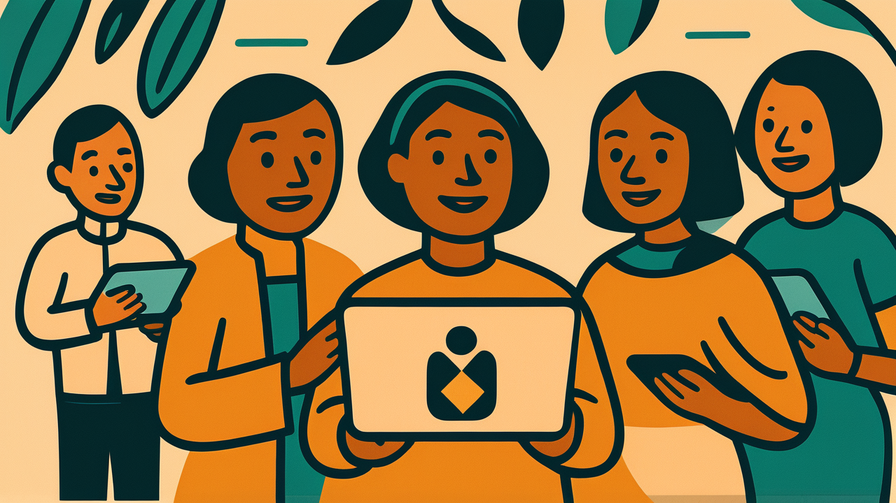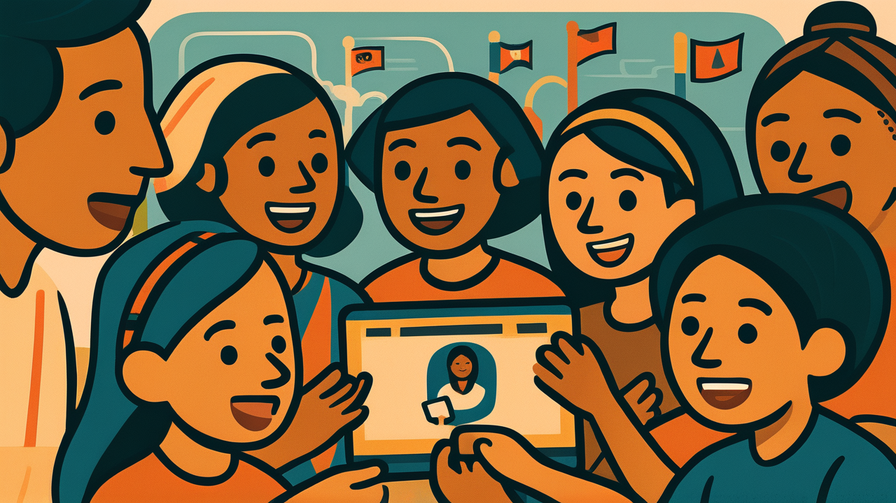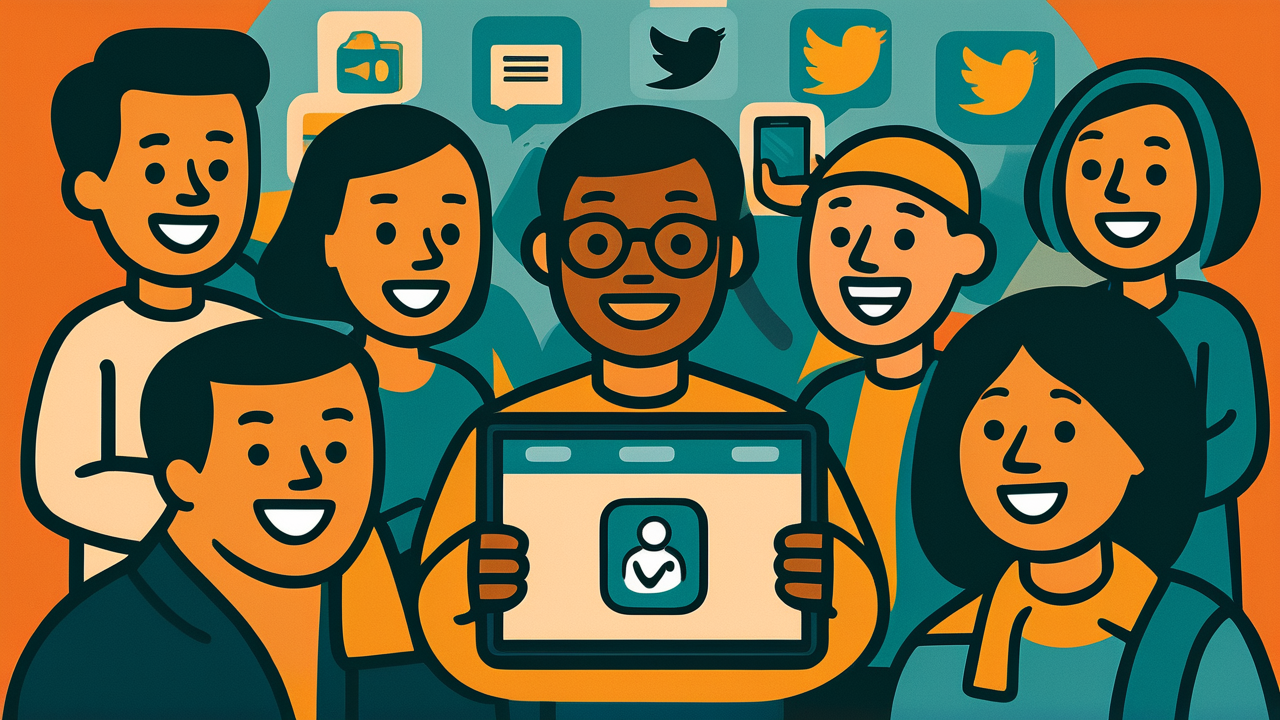[Disclaimer] This article is reconstructed based on information from external sources. Please verify the original source before referring to this content.
News Summary
The following content was published online. A translated summary is presented below. See the source for details.
Global Voices has launched a donation campaign to support their vital work in amplifying underrepresented voices worldwide, with a special focus on indigenous language preservation. The campaign highlights the work of Tapas Katu, an Atayal language digital activist who champions the normalization of indigenous language use in digital spaces. The Atayal language is spoken by the Atayal people, an indigenous group in Taiwan. Katu’s philosophy is simple yet revolutionary: using indigenous languages online should be completely normal, just like using any other language. Through digital activism, Katu and others are creating content, social media posts, and online communities in their native languages, proving that these languages belong in the modern digital world. Global Voices supports these efforts by providing a platform for indigenous voices, offering translation services, and building networks of activists worldwide. The donation campaign aims to expand these programs, create more digital resources for endangered languages, and support activists who are working to ensure their languages don’t just survive but thrive in the internet age. By making indigenous languages visible and vibrant online, these activists are inspiring younger generations to learn and use their ancestral languages.
Source: Global Voices
Our Commentary
Background and Context

Think about all the languages you see online every day—English, Spanish, Chinese, maybe some K-pop Korean. But what about the thousands of other languages spoken around the world? Global Voices is on a mission to change the internet’s language landscape, and they need your help.
The internet was supposed to connect everyone, but if your language isn’t online, you’re basically invisible in the digital world. That’s why activists like Tapas Katu are revolutionizing how we think about indigenous languages online. Instead of treating them as museum pieces, they’re making them as normal as posting in English on TikTok.
Expert Analysis
Tapas Katu’s approach to digital activism is brilliantly simple yet transformative. Here’s what makes it special:
Normalization Through Daily Use: Instead of creating special “cultural preservation” content, Katu posts about everyday life in Atayal—memes, jokes, daily observations. This casual approach shows young people that their indigenous language isn’t just for ceremonies but for texting friends and posting stories.
Digital Native Strategy: Traditional language preservation often focuses on elderly speakers and formal settings. Katu flips this by meeting young people where they are—on social media, in gaming communities, and in digital spaces where languages either adapt or die.
Creating Virtual Communities: When indigenous language speakers might be scattered across regions or countries, digital platforms become virtual villages where the language lives and evolves. Hashtags become gathering places, and comment sections become conversation circles.
Additional Data and Fact Reinforcement
The urgency of this work becomes clear when you see the numbers:
• 1 language dies every 2 weeks globally
• Over 3,000 languages are considered endangered
• Less than 500 languages are used in digital spaces
• The Atayal language has about 85,000 speakers in Taiwan
Global Voices’ impact:
• Operates in 40+ languages
• Network of 1,400+ volunteer authors and translators
• Bringing unheard stories to global audiences since 2004
• Supporting digital activists in creating language resources and tools
Related News
This campaign connects to broader movements we’ve covered before. Remember Google’s AI camera translator for 30+ endangered languages? Or how young filmmakers are using their languages to tell stories? Global Voices ties all these efforts together, creating a network where indigenous language activists can share strategies and support each other.
The timing is critical. As AI systems are being trained primarily on major languages, there’s a risk that minority languages will be further marginalized in our AI-powered future. By getting these languages online now, activists ensure they’ll be part of tomorrow’s digital infrastructure. Major tech companies are starting to pay attention—Facebook has added indigenous language interfaces, and TikTok is seeing indigenous language content go viral.
Summary

Global Voices’ donation campaign supports a revolutionary approach to language preservation: making indigenous languages as normal online as any major world language. Through activists like Tapas Katu, endangered languages are finding new life in memes, social posts, and digital communities.
For students, this campaign offers multiple ways to help. You can donate, but you can also amplify indigenous voices by following and sharing their content. If you speak an indigenous or minority language, start using it online! Every post, every story, every comment helps normalize these languages in digital spaces. The future of linguistic diversity isn’t in museums—it’s in your Instagram feed, your TikTok FYP, and your group chats. By supporting Global Voices, you’re not just preserving the past; you’re building a more inclusive digital future.
Public Reaction
Young indigenous speakers worldwide have embraced this approach, with many reporting they feel more confident using their languages online after seeing activists like Katu. Parents and elders initially skeptical of “internet language” are warming up as they see it engaging youth. Tech workers are volunteering to create apps and tools for indigenous languages. Some critics argue that online use changes languages too quickly, but supporters say living languages must evolve. The campaign has attracted support from linguists, educators, and even some tech companies interested in diversifying their platforms.
Frequently Asked Questions
Q: How can I support indigenous languages if I don’t speak one?
A: Follow indigenous content creators, share their posts (even if you don’t understand), and donate to organizations like Global Voices. Your engagement helps their content reach more people.
Q: Why should languages be online if elders don’t use the internet?
A: Languages need young speakers to survive. Meeting youth where they are—online—ensures the language continues to the next generation, who can then share it with elders in person.
Q: What does Global Voices do with donations?
A: They fund translation services, support digital activists with tools and training, create language resources, and maintain platforms where underrepresented voices can reach global audiences.


